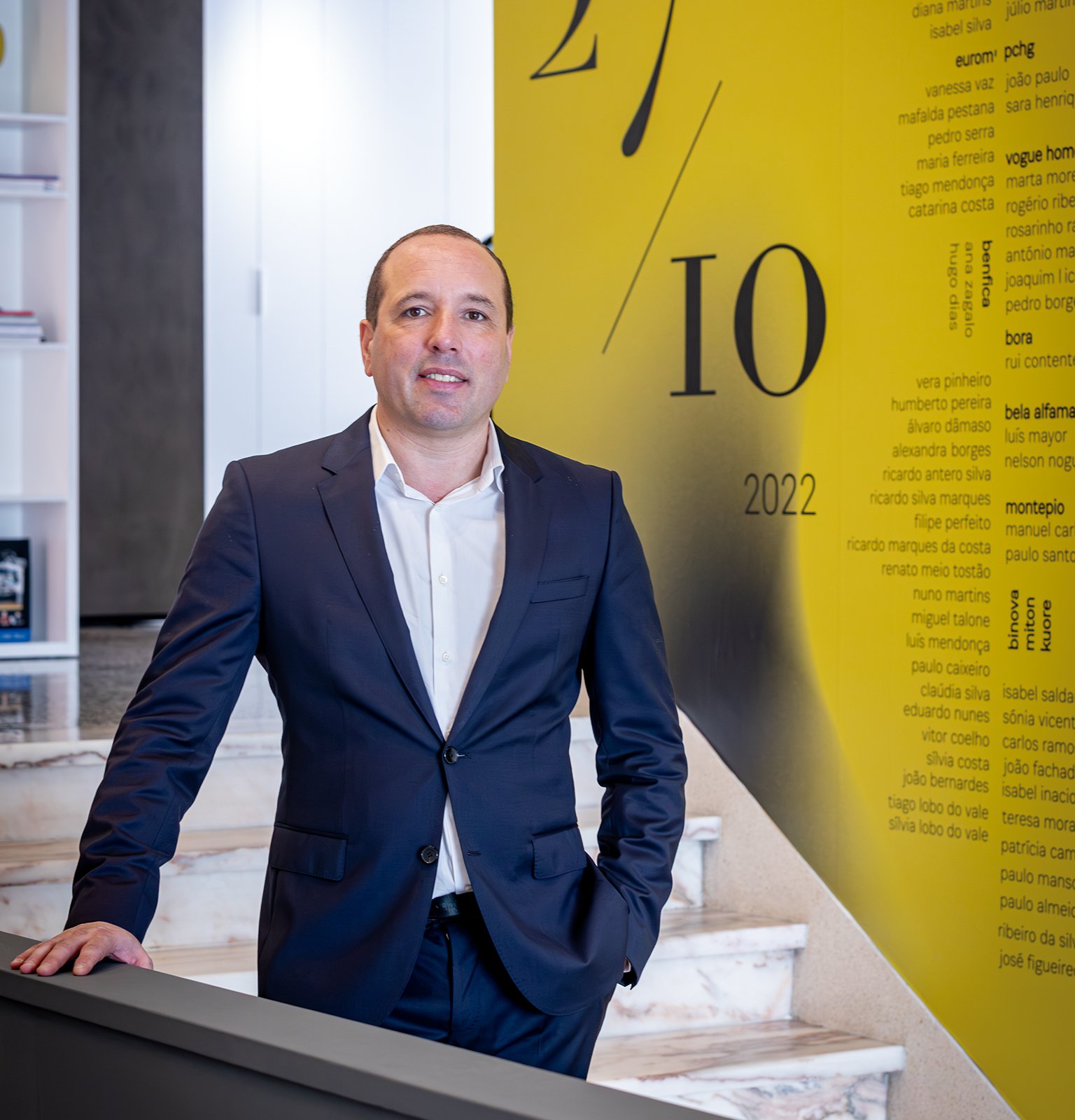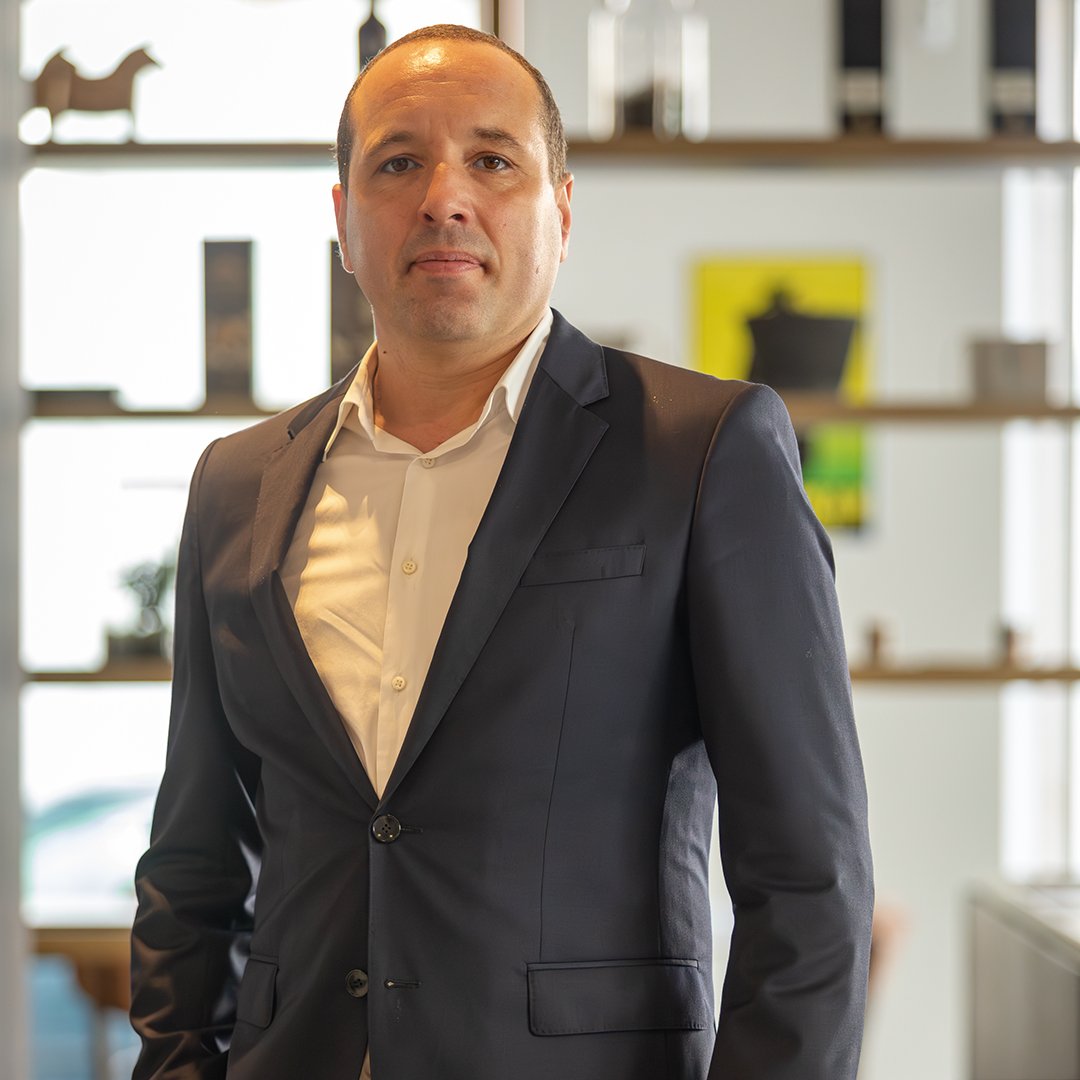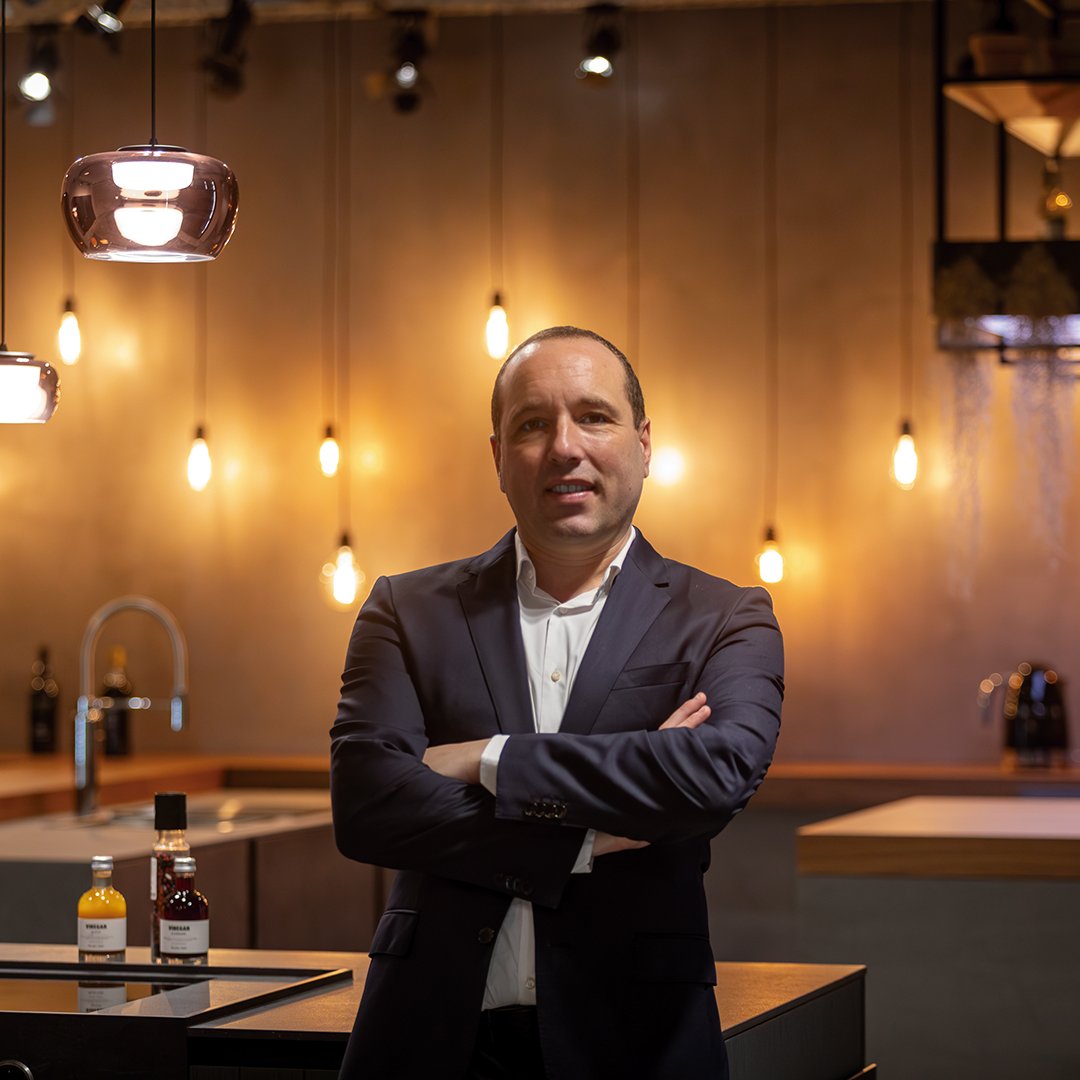
Rui Marçal is the unstoppable, tireless,
non-conformist and always irrepressible figure who is the face of KUC. He doesn’t
claim to be a business manager, he leaves that to a professional in the field.
He is the founder of KUC, a creator of relationships of trust. Ten years ago,
he dreamed up this company because he wanted to have a high-end yet
unpretentious company, where luxury is simple and natural. His first project,
like a first child, sticks in his mind as something unique and special, because
everything was like no other - the first client, the first project, the first
relationship of trust. Today, this client is still his friend. Why is that?
When we speak to Rui, it’s easy to see why... Because Rui doesn’t just make
quality kitchens, Rui is a tireless fighter for making the dreams of those who
come to him come true, Rui takes care of all the «little things» and, with
this, creates a relationship of trust with those who believe in him. And,
because companies are made of people, that’s also why KUC is today an
inescapable benchmark for top-of-the-range kitchens. The ‘first child’ has been
joined by so many others projects and all of them are special now.
What is the meaning of the name KUC?
KUC initially stood for kitchen under creation, because I believe that kitchens are always in a continuous process of creation. There is never a perfect kitchen, there is always an improvement that can be made. Our kitchens are good, but there’s always something that can be changed for the better. And that’s how we approach our work. Although, as the company has evolved, we have stopped using this phrase, it is inherent in the name and the message is present: we are always creating, always building and always improving.
Do you recall the brand’s first project? If so, can you see any evolution compared to more recent work?
Perfectly. There were four kitchens in Rua do Alecrim, Lisbon, for a client who is now also a friend. They were very special kitchens. I came from another company; I was starting out and he put his trust in me. He bought the kitchens without having seen the samples. He just went ahead on the basis of a vote of confidence in my work. When the project started, the client even praised the way I was working. I felt we were doing it right. And this was two or three months after the company opened. So, these kitchens were like a first child. They had all the attention in the world, all the care and then some, which is something I admit we can’t do nowadays. Nowadays, we have better work processes and better organisation, and we manage to juggle several projects at the same time, but at that moment the whole company was focused on seeing those four kitchens come to life. It was truly very special. Do I notice any evolution? Yes, I notice that we’re always improving. And there’s always something we didn’t do in one kitchen, but we can do in another.
Is this room in the house measured in terms of square metres or the functionalities it offers?
Neither. Square metres are just the spatial limits we have to deal with. Nothing more. They have no bearing on the quality of the project, apart from the limits of the space. Functionality isn’t measurable either, because each kitchen has to be adapted to the person, the time they spend in the kitchen, their habits, the type of food they eat, the use they’re going to give it. That’s why both the square metres and the functionalities are based on the client’s lifestyle. What truly defines a kitchen, therefore, is how we can put it at the service of the customer’s day-to-day life and how we can adapt our product to serve and enhance the potential that this room in the house will provide, without the square metres or the so-called functionalities being the main obstacles.
«Creating a kitchen that is as much functional as it is aesthetically impressive»
What is the meaning of the name KUC?
KUC initially stood for kitchen under creation, because I believe that kitchens are always in a continuous process of creation. There is never a perfect kitchen, there is always an improvement that can be made. Our kitchens are good, but there’s always something that can be changed for the better. And that’s how we approach our work. Although, as the company has evolved, we have stopped using this phrase, it is inherent in the name and the message is present: we are always creating, always building and always improving.
Do you recall the brand’s first project? If so, can you see any evolution compared to more recent work?
Perfectly. There were four kitchens in Rua do Alecrim, Lisbon, for a client who is now also a friend. They were very special kitchens. I came from another company; I was starting out and he put his trust in me. He bought the kitchens without having seen the samples. He just went ahead on the basis of a vote of confidence in my work. When the project started, the client even praised the way I was working. I felt we were doing it right. And this was two or three months after the company opened. So, these kitchens were like a first child. They had all the attention in the world, all the care and then some, which is something I admit we can’t do nowadays. Nowadays, we have better work processes and better organisation, and we manage to juggle several projects at the same time, but at that moment the whole company was focused on seeing those four kitchens come to life. It was truly very special. Do I notice any evolution? Yes, I notice that we’re always improving. And there’s always something we didn’t do in one kitchen, but we can do in another.
Is this room in the house measured in terms of square metres or the functionalities it offers?
Neither. Square metres are just the spatial limits we have to deal with. Nothing more. They have no bearing on the quality of the project, apart from the limits of the space. Functionality isn’t measurable either, because each kitchen has to be adapted to the person, the time they spend in the kitchen, their habits, the type of food they eat, the use they’re going to give it. That’s why both the square metres and the functionalities are based on the client’s lifestyle. What truly defines a kitchen, therefore, is how we can put it at the service of the customer’s day-to-day life and how we can adapt our product to serve and enhance the potential that this room in the house will provide, without the square metres or the so-called functionalities being the main obstacles.
«Creating a kitchen that is as much functional as it is aesthetically impressive»












